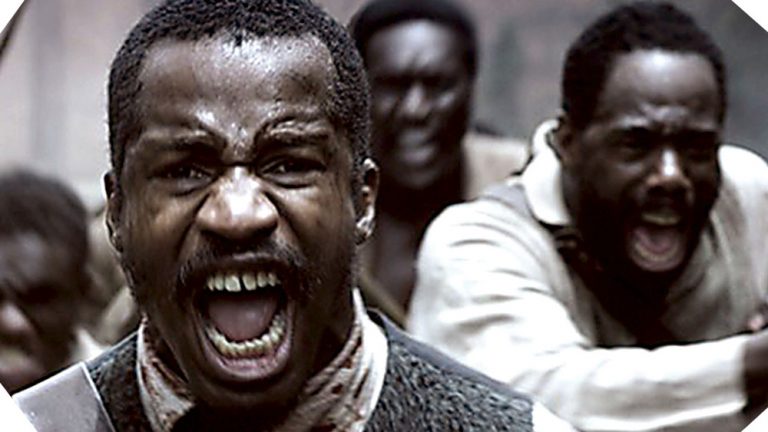
Emmanuel Alcantar
How do you review a film about a historical figure and horrific practice that occurred in the United States during the 1800’s? Some would argue that the film represents an important part of U.S. history and that there is an obligation for people to see it. Some could claim that there is an obligation not to see it due to the controversies and allegations of rape surrounding the director. Although art is, in many ways, innately a reflection of the artist, this film will not be faulted for the apparent sins of the artist, rather judged on the merits of its accomplishments.
The Birth of a Nation, written and directed by Nate Parker (directorial debut), follows the story of Nat Turner (Parker), a slave and preacher who led a failed rebellion in Southampton County, Virginia. The film begins with Turner as a young child witnessing many atrocities (one of which involves his father), which lead him to become a preacher, being used by his slave owner (Armie Hammer) to help further subdue angry slaves throughout Virginia.
The images presented in the film are shot beautifully. In one powerful scene Parker’s character has been left outside at night after being whipped and a row of candles are set out by the other slaves in solidarity, evoking religious imagery that is repeated in the film. There are also recurring dreams/visions that Turner has throughout the film that are striking in their vibrancy, especially in a movie that is devoid of saturation (much of the coloring in this film is blue and white).
The topicality of the film becomes one of its strongest assets, especially relevant in light of the formation of the Black Lives Matter movement, racist rhetoric in the political stage, and the use of religion to further marginalize different groups such as women and LGBTQ people. The need to resist those who seek to undermine the most basic human liberties are qualities that the film embodies.
My biggest complaint with the film is the script’s constant need to either oversimplify or use clichés seen in other films of similar subject matter. Despite the title of the film suggesting that it would be about something larger than Turner, Turner ends up dominating the entire film. This would not normally be a fault, but the script portrays Turner, as well as all its characters, as lacking in depth.
Despite Parker’s best attempts at conveying complexity (he gives the film’s best performance), Turner is portrayed as inherently moral – the film never explains what motivates him to become a preacher or why the bible particularly resonated with him. Slave owners are merely deplorable, each one that gets introduced becoming more and more redneck.
Armie Hammer’s character as Nat Turner’s slave owner gets the closest to being nuanced, as he was friends with Nat when they were children and is visibly unsettled at the treatment of other slaves, only to become as equally deplorable as the others.
At one point a betrayal happens in the movie that is never explained. This becomes particularly damaging as the narrative strays from Turner in the end and attempts to use this betrayal to emphasize its message. The script’s habit to oversimplify becomes most apparent when Jackie Earle Haley’s character becomes the recurring main villain. It makes the film feel too self-contained despite the fact that slavery pervaded a large segment of the country and was not caused by a single person.
In many ways, my feelings are mixed on The Birth of a Nation. One the one hand, the cinematography is beautiful, the acting is stellar, and the directing, for the most part, is solid. On the other hand, all of these qualities are undercut by a script that fails to convey any sense of nuance. However, for all my quibbles with the film, I still find myself saying that this film has to be seen. This is a strong debut for Nate Parker and it is admirable in its tackling of a thorny era in our history that is still prevalent in American politics and society today. Nat Turner’s story is one worth telling and knowing.
















